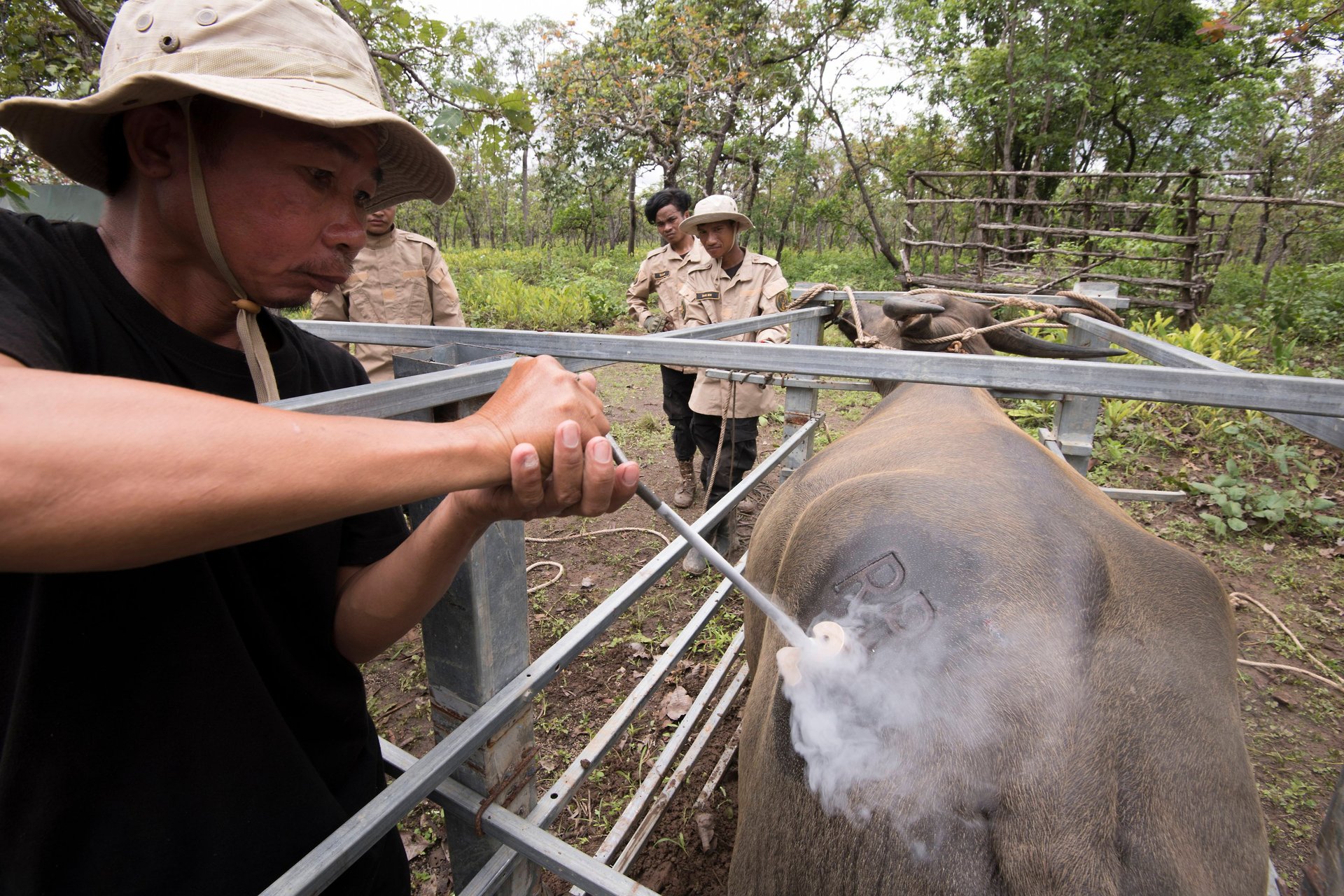
Community Development Unit
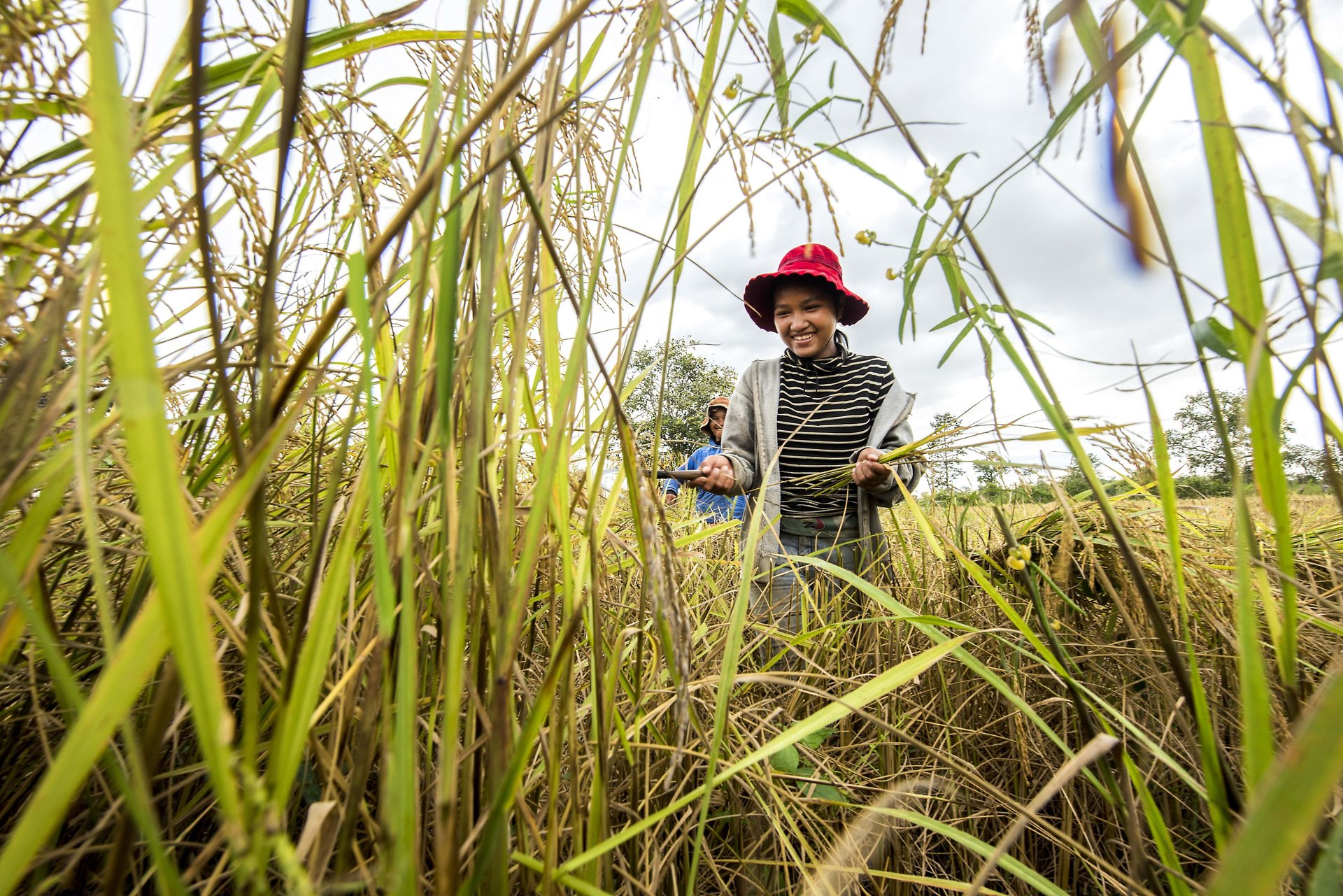
A fundamental challenge conservationists face is how to provide tangible reductions in household poverty in return for positive behaviour towards adjacent protected areas and their conservation. Villagers joining the IBIS Rice scheme receive agricultural extension support and rice seed and are able to sell the resulting organic certified product at a premium to IBIS Rice Co. Ltd., increasing their household income. Households are eligible to cultivate and sell their paddy to IBIS Rice only if they have signed a conservation agreement with the project giving an undertaking to halt logging, hunting wildlife, encroachment, or using chemicals or poisons in the wildlife sanctuary. During the agricultural year each household must undergo an audit from ECOCERT in order to receive United States Department of Agriculture organic certification. Across the four provinces in which IBIS Rice operates, Siem Pang District remains its biggest producer.
IBIS Rice Scheme
When Rising Phoenix began the IBIS Rice programme in 2017, we started with 43 households in a single village. Since then, we have steadily increased the number of participating villages, and in 2024, we have increased this to 19 villages and 1,234 households. This represents 5,125 local people.
Learn more about IBIS Rice here: https://ibisrice.com/
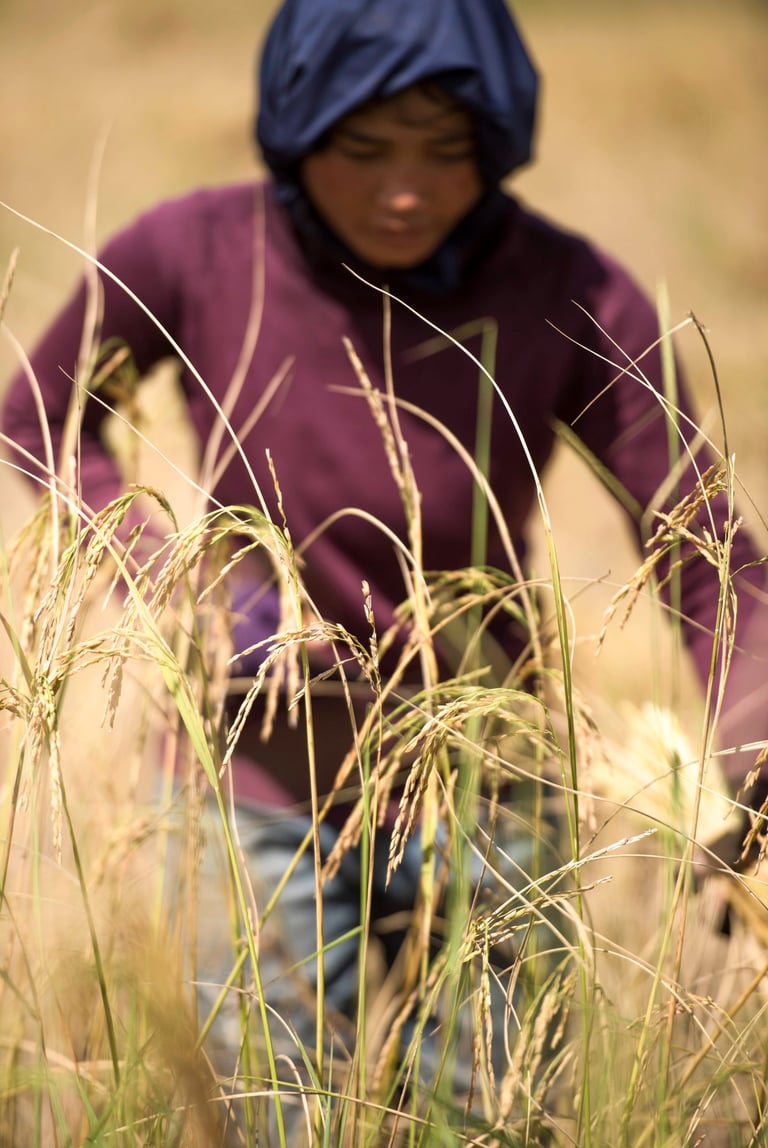

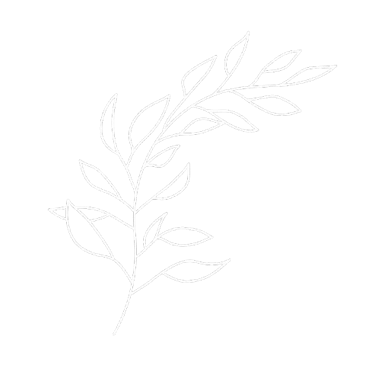

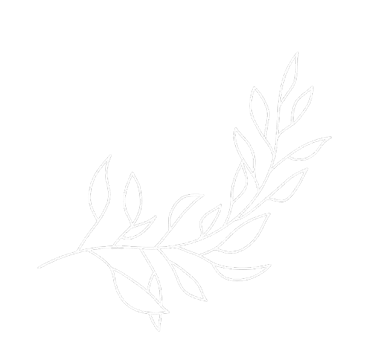

By December 2024, 1025 of the 1,234 households in the IBIS Rice scheme sold 2,020 tonnes of paddy. This totalled US$ 933,738, providing each family with an average income of US$ 910.
Were these villagers not involved in the IBIS Rice scheme, the household income would be considerably lower, and in many cases, zero. Aside from working as a day labourer on nearby banana plantations, or running a local shop, alternative legal sources of cash income are few. The project has additionally mapped 300 land parcels, which we registered at provincial level, providing soft land titles belonging to 222 households in 14 villages.
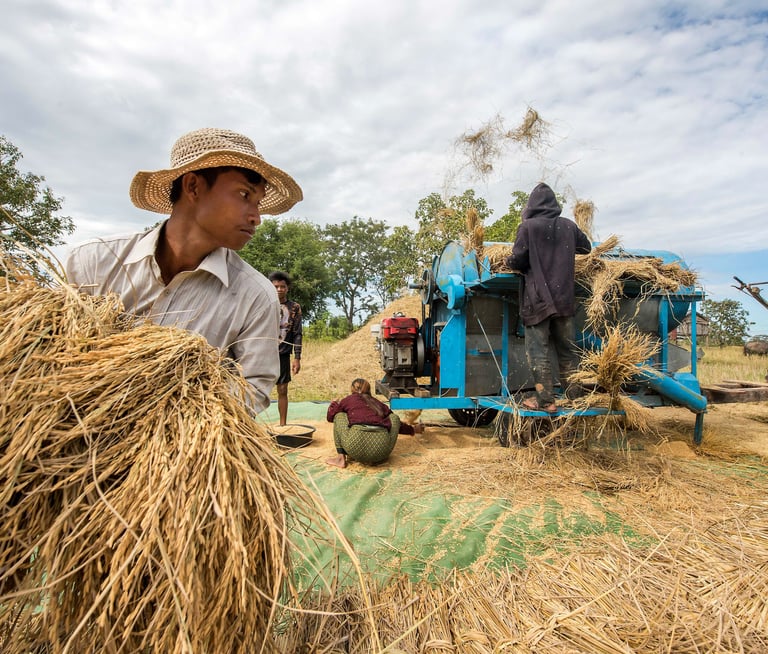

2,020
$ 933,738
total USD
tonnes of paddy
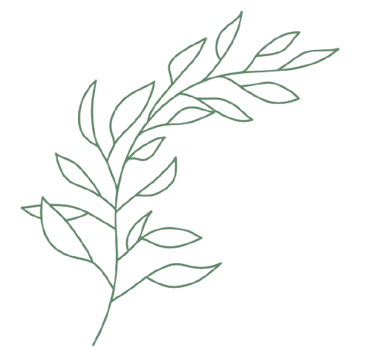

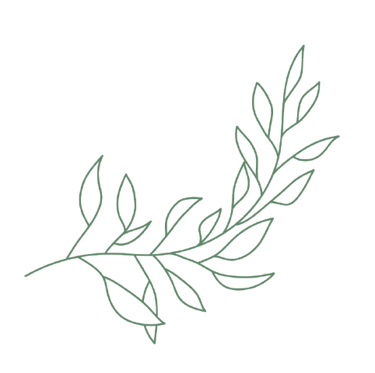

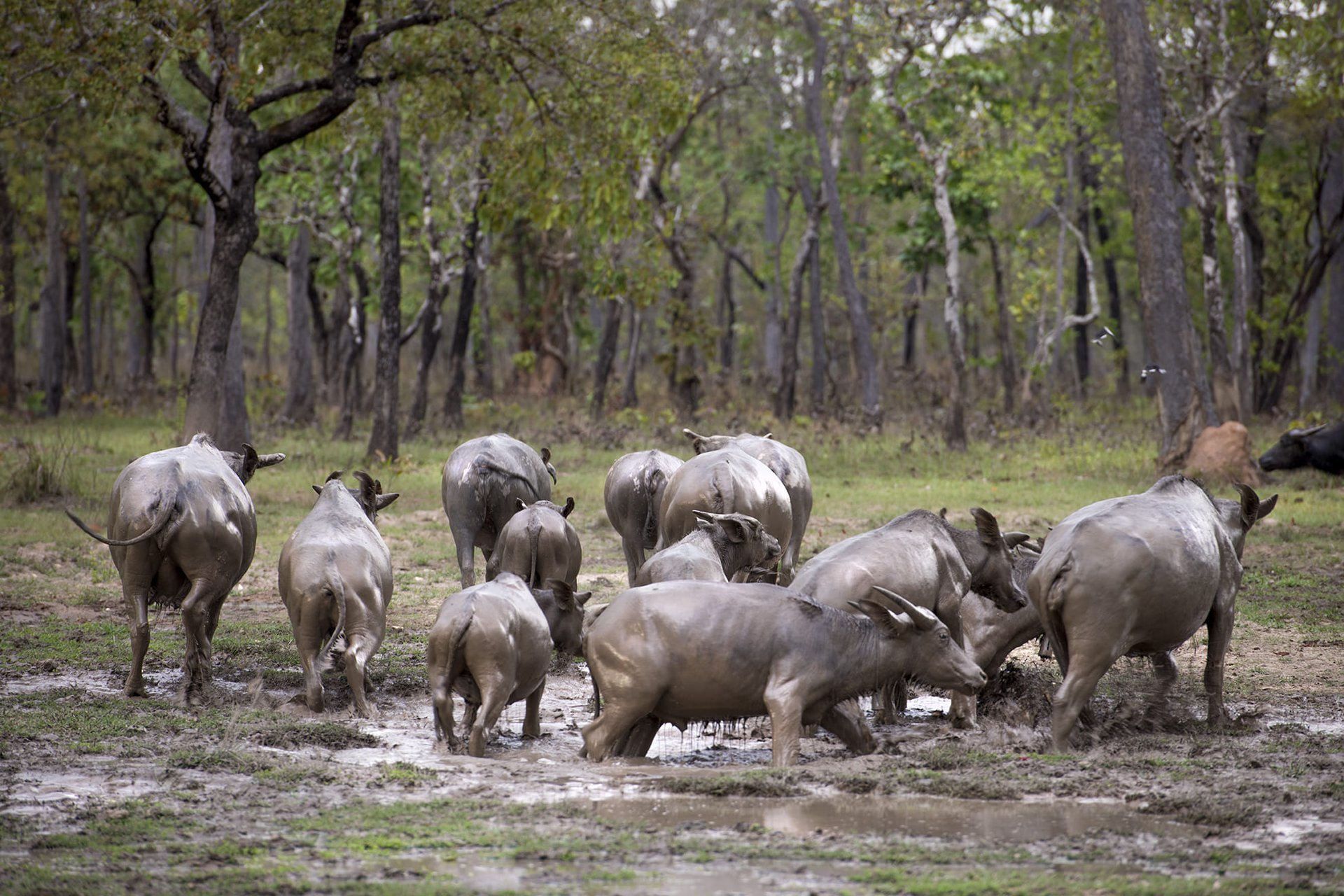
Vaccinating Livestock
Our second livelihoods focus is on controlling outbreaks of foot and mouth disease and haemorrhagic septicaemia in cattle and buffalo. Whilst the former disease is debilitating, the latter is always fatal. Since these livestock provide a source of income to villagers and play an important role in forest ecology via their grazing and wallowing in wetlands, we provide vaccinations twice yearly in June and December.
We implement this vaccination programme to help villagers better manage their assets and reduce the risk of disease transmission to the wild cattle species for which the wildlife sanctuary is important.
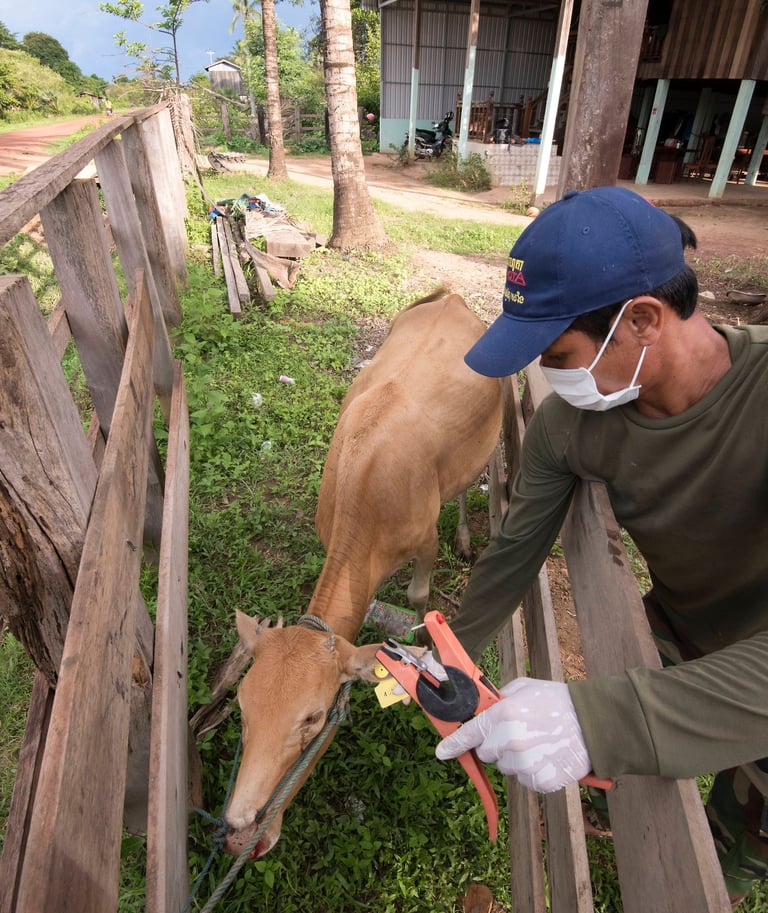

4000-6000 animals are vaccinated bi-annually





Watch our video detailing more about the IBIS Rice Scheme and livestock vaccination below.
Visitors and Working with Local People
The CDU attends the annual village fair as part of community outreach about biodiversity. Rising Phoenix hosts quarterly village meetings with the government and law enforcement.
The CDU has further aided local households by digging 40 irrigation ponds to counter irregular rainfall during the growing season. The CDU is now experimenting with a new initiative to promote sustainable cricket farming, involving 50 households across 3 villages.
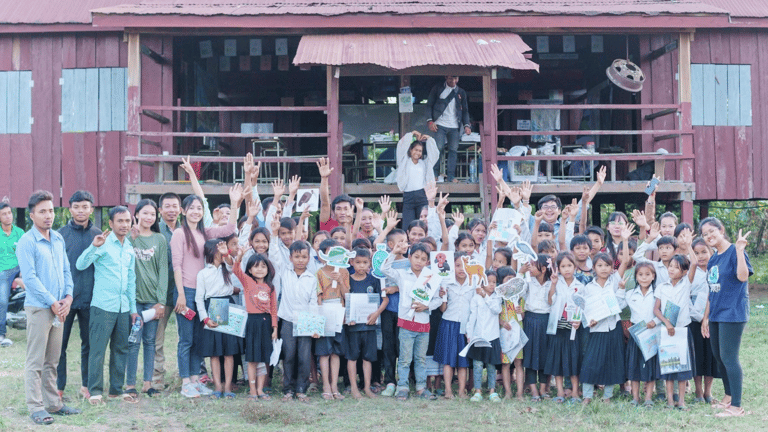





Rising Phoenix Co. Ltd.

Supporting wildlife and forest conservation efforts.
© 2025. All rights reserved.
